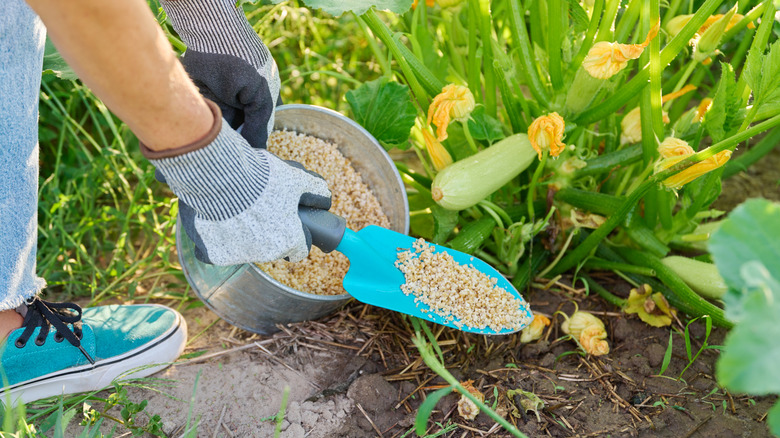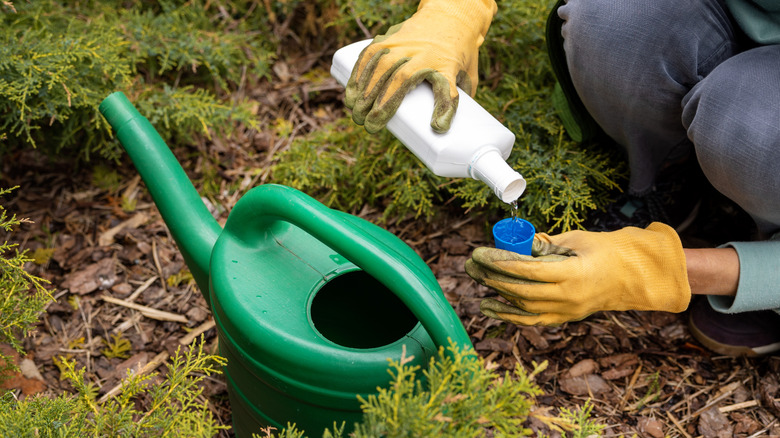How Long Does Opened Fertilizer Last?
Your garden soil needs a complex mixture of nutrients and minerals to provide what flowers and vegetables need for healthy growth. Although nature does its best, sometimes she needs a helping hand, and while it's possible to make a variety of DIY fertilizer teas to nourish your garden, store-bought alternatives are usually a carefully balanced option you know you can rely on.
However, if you're spending your hard-earned money on these concoctions, it's understandable that you'll want to know how long they'll last once opened. With so many different formulas available, it could have an impact on which one you choose. As you might guess, shelf life can vary considerably and very much depends on the fertilizer type. Whatever type of fertilizer you buy, the label should have some important information. Some of it can be a little confusing, so it helps to know what the numbers on fertilizer really mean. There may or may not be a shelf life, but there will almost always be storage instructions. These should be followed closely to maximize how long the open fertilizer will last.
Life expectancy of fertilizer
Granular fertilizers can be kept for many years if stored properly, and in fact, some may last indefinitely. It's important to keep them dry, so transferring them to a sealed plastic container once opened is a good idea. However, if you're thinking about which fertilizer is best for your lawn, you'll want to research carefully, as granular ones can be more sensitive to storage conditions. Liquid fertilizers might be good for five to 10 years but degrade more quickly than granular ones once opened. Finally, unlike synthetic fertilizers, which are usually fairly stable, organic fertilizers are constantly changing. As a result, they shouldn't be expected to last more than a year or two.
There are some typical signs that the fertilizer has gone bad, and again, it varies with type. If granular fertilizer gets damp, it will clump. Although it probably won't harm plants, it will have lost much of its benefit. Liquid fertilizer may develop mold, or the bottle could inflate, which is a sign of microbes feeding on the contents. It may also separate. If shaking doesn't recombine it, it's time to throw it away. Organic fertilizers may also grow mold, but perhaps the most obvious sign is that they will smell really bad. If that's the case, then using it could do more harm than good.
When disposing of fertilizer you think may have gone bad, don't pour it down the drain or throw it in the trash, particularly if it also contains pesticides. A local garden store may dispose of it for you, or you can contact the waste management agency in your area for advice.

